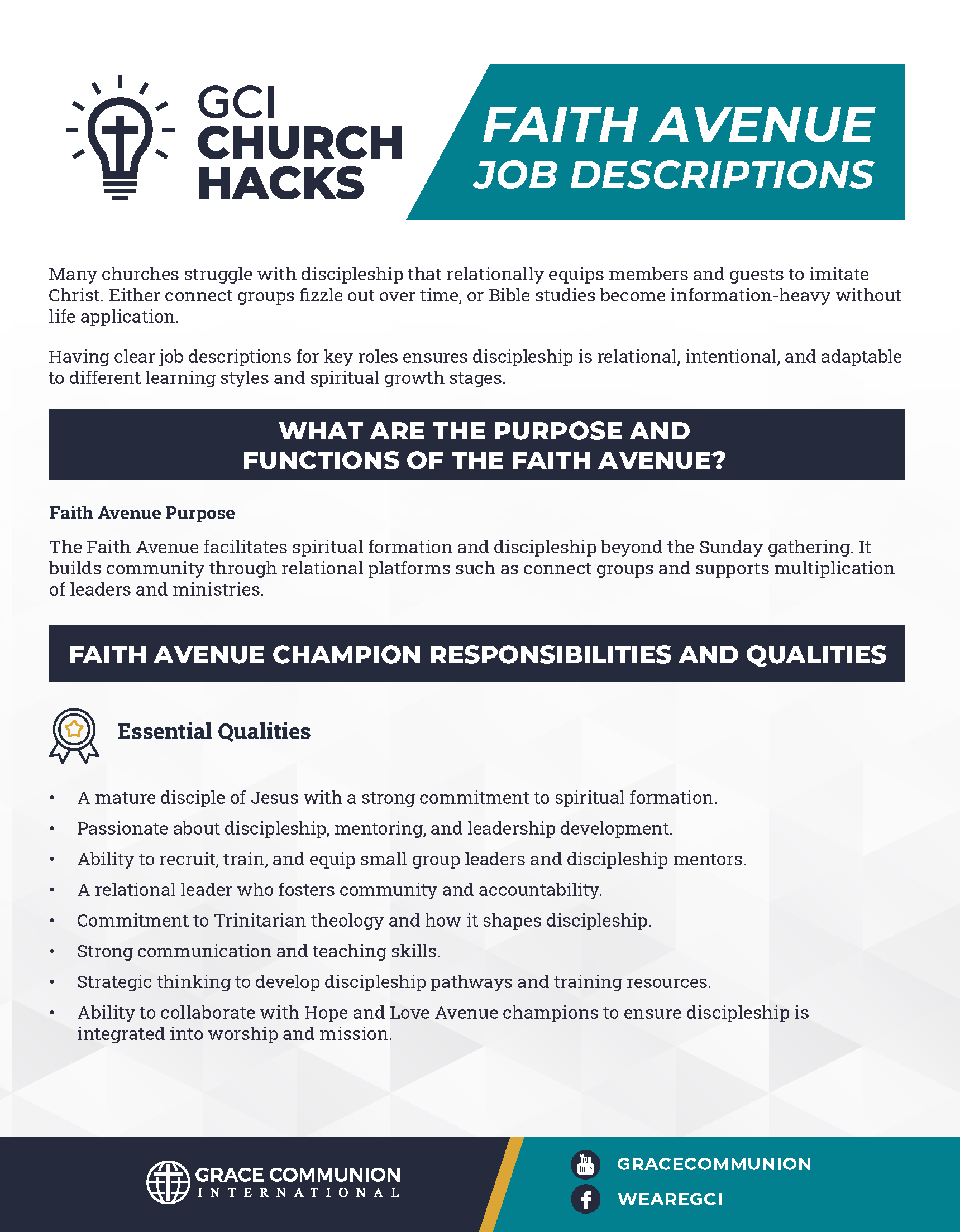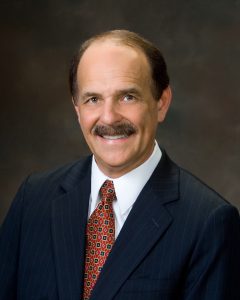Andrew Torrance—Year C Proper 9-12
Welcome to the Gospel Reverb podcast. Gospel Reverb is an audio gathering for preachers, teachers, and Bible thrill seekers. Each month, our host, Anthony Mullins, will interview a new guest to gain insights and preaching nuggets mined from select passages of Scripture in that month’s Revised Common Lectionary.
The podcast’s passion is to proclaim and boast in Jesus Christ, the One who reveals the heart of God, Father, Son, and Holy Spirit. And now onto the episode.
Anthony: Hello, friends, and welcome to the latest episode of Gospel Reverb. Gospel Reverb is a podcast devoted to bringing you insights from Scripture, found in the Revised Common Lectionary, and sharing commentary from a Christ-centered and trinitarian view.
I’m your host Anthony Mullins, and it’s my delight to welcome our guest, Dr. Andrew Torrance. Andrew is a professor of theology at the University of St. Andrew’s School of Divinity. He’s also the co-director of the Logos Institute of Analytical and Exegetical Theology, along with Oliver Crisp.
Dr. Torrance is a member of a group of scholars organized by BioLogos, exploring the nature of human identity and personhood. Recently he finished co-writing with Alan Torrance, the book Beyond Eminence, the Theological Vision of Kierkegaard and Barth.
Andrew, thanks for being with us and welcome to the podcast. And since this is your first time on the pod, we’d like to know a little bit about you, your story, and how you are participating with Jesus these days.
Andrew: Okay. Thank you, Anthony. It’s really great to be here. And it’s always hard to know where to start, when I say something about who I am. But as you mentioned, I teach theology at the University of St. Andrews. I see that as my primary calling. And serving the church in this world through working with students and helping them to really know and understand who the triune God of love is, and how we in creation relate to that God. And so that’s my primary calling in this world. But I’m also actively involved in the church very well in the Church of Scotland as an elder.
And actually, recently though, I’ve been more involved in a denomination called United Free Church, where I’ve been attending a slightly different congregation for a while. I was very involved with in a fresh expression of ministry in St. Andrews, where we ran a breakfast church in St. Andrews. But for a variety of reasons, COVID wasn’t great for a breakfast church, and so we ended up having a hiatus, which sort of ended up finishing that ministry. Since then, I’ve been taking a bit of a season of time out from being more actively involved in church ministry. But I’m going to be starting doing a bit more preaching things again and being involved in different ways as well. Yeah, that’s me.
[00:03:03] Anthony: I mentioned in the introduction Andrew, that you wrote a book called Beyond Eminence, and I’m just curious. I haven’t had a chance to read it, but I plan to. So, what insights are you hoping somebody like me will take away from the reading experience?
[00:03:18] Andrew: Great. So, there’s a variety of different topics that we’re covering in that book. It’s primarily a book thinking about the relationship between Kierkegaard and Karl Barth. But I think what makes them so interesting as thinkers is that there are two thinkers that really center their theology and their Christian vision on the reality of Jesus Christ, what it means to participate in that reality and to follow Jesus Christ in a world that is always resisting that reality.
And particularly it’s interesting to think about them in the respective context as they sought to understand the gospel in ways that were resistant to forms of Christian nationalism, a Christendom context that’s kind of enculturated Christianity in ways that merged it with a lot of what was going on in society to the detriment of the gospel.
And so, what they tried to present was something that was entirely new and fresh, to really speak God’s words in a new way to their context, in ways that was both challenging, but also affirming people, and encouraging them with a hope for there being so much more to the nature of this world as a world that’s created by God, and while that’s created by God to find its fulfillment in Jesus Christ.
[00:04:33] Anthony: And it sounds timely. And I’m just curious, you co-wrote it with Alan Torrance. Did your dad try to boss you around with the text, tell you what to write?
[00:04:44] Andrew: It was definitely an ongoing conversation. So, I actually did my PhD on Karl Barth, and so I actually wrote my half before he really started working on his half.
But then, yes, I wrote my part here at his house. And then I made a lot of changes based on what he wrote, and then there was a bit of, quite a bit of a back and forth over a few years. And yeah, yeah, there was no bossing around, but it was, yeah, there was definitely a constructive conversation going on.
[00:05:16] Anthony: Sure. Sure. I look forward to getting the book and let’s do this, let’s dive into the lectionary text that we have this month. That’s why we’re here.
Our first pericope of the month is Galatians 6:7–16. I’ll be reading from the New Revised Standard Version, the updated edition. It is a Revised Common Lectionary passage for Proper 9 in Ordinary Time, July 6.
Do not be deceived; God is not mocked, for you reap whatever you sow. 8 If you sow to your own flesh, you will reap corruption from the flesh, but if you sow to the Spirit, you will reap eternal life from the Spirit. 9 So let us not grow weary in doing what is right, for we will reap at harvest time, if we do not give up. 10 So then, whenever we have an opportunity, let us work for the good of all and especially for those of the family of faith. 11 See what large letters I make when I am writing in my own hand! 12 It is those who want to make a good showing in the flesh who try to compel you to be circumcised—only that they may not be persecuted for the cross of Christ. 13 Even the circumcised do not themselves obey the law, but they want you to be circumcised so that they may boast about your flesh. 14 May I never boast of anything except the cross of our Lord Jesus Christ, by which the world has been crucified to me and I to the world. 15 For neither circumcision nor uncircumcision is anything, but a new creation is everything! 16 As for those who will follow this rule—peace be upon them, and mercy, and upon the Israel of God.
Andrew, how would you explain sowing to the flesh versus sowing to the Spirit, which we find in verse 8. And how can this text be read without being overly prescriptive or sounding like karma dressed up in Christianity?
[00:07:16] Andrew: Great, thank you, Anthony. So, the sow to the Spirit is to recognize first that the reality of something going on in this world that is so much greater than the ways in which we define the world for ourselves. And that’s something theological. It’s witnessing to the triune God and the particular ways in which God is working in the world. And following Pentecost, God works in the world through the Spirit, who is at work in the church animating and empowering our lives to express something that goes beyond what is on the kind of the surface of this world.
Those things that appear to us immediately. And so often, the habits of the way we interpret the world, is to reduce the reality to what is immediately in front of us, to allow our basic instincts to determine the direction of our lives, to let this world as it’s kind of closed in its own kind of bubble to be what defines all that there is in this world.
And what it means to sow to the Spirit is to seek the more to reality, and that more to reality is the way in which God is defining it from beyond the ways in which the world might try to define itself. Okay? And so that means that we are called to participate in something that is beyond our every expectation.
Okay? So, this kind of way we might think about balance and forms of karma, is to operate in very human categories. Where there it’s dealing with the work of the Spirit, there’s something incredibly inspiring and just very new, which means that we’re constantly required to seek God in ways that allow him to speak to us in new ways, to guide our lives in new directions.
And that means transformation — to receive and to sow our life to the Spirit is to be people that are transformed in ways that align us with God’s kingdom coming on earth as it is in heaven.
[00:09:22] Anthony: I didn’t plan to ask you this question, so I hope you don’t mind, but as I’m looking at verse 9, it talks about not growing weary and doing good.
And there’s that preposition “if”, and it can sound very conditional: “if you don’t give up.” Is there a word of good news for somebody who maybe in their walk with Christ right now who is just feeling like they want to give up? Is there something we can take away from that as good news?
[00:09:51] Andrew: What this verse is doing with its “if” isn’t simply prescriptive, it’s descriptive. And what this verse is doing is telling you about the reality of things that gives people a sense of security and a groundedness that is beyond what they’re able to achieve for themselves. And it encourages people to rest, to embrace that kind of Sabbath reality.
And when they’re weary, to take time out to seek God and to seek a form of empowerment and inspiration and energy that they just don’t have the capacity to achieve. I think when some things are taken out of our hands, when we recognize that there’s something beyond us that is securing our lives in this world, that can give people a sense of peace and rest.
But with any answer like this, we’ve got to know the specifics of the situations and the struggles that people are facing, I think, in order to address them better. But I think simply being, simply recognizing that the gospel calls people to a sense of peace and rest in order for them to be empowered to be witnesses to the reality of the gospel, I think that’s something that should ease the minds of people that are experiencing stress and anxiety in their lives.
[00:11:09] Anthony: Yeah, that’s a good word, Andrew. You talked about just resting and I have found, just my own personal experience and you mentioned this as well, discerning the particularity of the situation. But when I grow weary, I’m trying to do too much on my own like by my own strength and my own might, which is fragile, anemic at best. And so, leaning on Christ, as you said. And we read here, Paul writes in verse 15, that new creation is everything. Okay, everything. So, what’s he getting at?
[00:11:46] Andrew: There’s so many things that can be got at with these words. How I take them is that Paul is challenging the ways in which we are living in the old creation. In some ways, as I said already, we settle into the patterns of this world and make that world everything. We settle into the patterns of the flesh, we make these patterns, everything.
And when we recognize the reality of who God is for us in Jesus Christ, and we recognize the ways in which we’re embraced constantly by the power of the Holy Spirit, that requires us to recognize that this newness is everything. It is everywhere. It surrounds us. It’s elevating us into experiencing reality in a way that is transformative. And to say that this newness is everywhere and that it is, everything, resists our desire to guess It.
I think when we, it’s so easy for us to compartmentalize in ways that puts our Christian faith into a small quarter in the room, into a small box, maybe a box we open on a Sunday morning, or maybe when we open a few times a day when we pray. And we compartmentalize our lives in ways that means that we’re not always living into that reality.
And what this verse tells us is to say, no, you shouldn’t be doing that. This is fundamental to every aspect of your lives, and unless you learn to interpret your bias, you’re calling in this world more than that, you’re going to be deluded. You’re going to be living into the old passions of this world, so into the flesh in ways that means that you’re missing out on what is actually going on. You’re asleep, you’re not awakened to the reality of the worth of the Spirit.
[00:13:33] Anthony: Wake up, O sleeper. Let’s go.
Alright, let’s transition to our next pericope of the month. It is Colossians 1:1–14. It is a Revised Common Lectionary passage for Proper 10 in Ordinary Time on July 13. Andrew, would you read it for us, please?
[00:13:54] Andrew: Yes, of course.
Paul, an apostle of Christ Jesus by the will of God, and Timothy our brother, 2 To the saints and faithful brothers and sisters in Christ in Colossae: Grace to you and peace from God our Father. 3 In our prayers for you we always thank God, the Father of our Lord Jesus Christ, 4 for we have heard of your faith in Christ Jesus and of the love that you have for all the saints, 5 because of the hope laid up for you in heaven. You have heard of this hope before in the word of the truth, the gospel 6 that has come to you. Just as it is bearing fruit and growing in the whole world, so it has been bearing fruit among yourselves from the day you heard it and truly comprehended the grace of God. 7 This you learned from Epaphras, our beloved fellow servant. He is a faithful minister of Christ on our behalf, 8 and he has made known to us your love in the Spirit. 9 For this reason, since the day we heard it, we have not ceased praying for you and asking that you may be filled with the knowledge of God’s will in all spiritual wisdom and understanding, 10 so that you may walk worthy of the Lord, fully pleasing to him, as you bear fruit in every good work and as you grow in the knowledge of God. 11 May you be made strong with all the strength that comes from his glorious power, so that you may have all endurance and patience, joyfully 12 giving thanks to the Father, who has enabled you to share in the inheritance of the saints in the light. 13 He has rescued us from the power of darkness and transferred us into the kingdom of his beloved Son, 14 in whom we have redemption, the forgiveness of sins.
[00:15:43] Anthony: Whew. That’s a mouthful. There’s a lot going on here. And I’m curious. Before I get into the questions, I wanted to ask you when we come to scripture, the first question of theology is, who is God being revealed in Jesus Christ? So, what would you want to say to a congregation, your congregation, about God as revealed in this text?
[00:16:04] Andrew: Very simply, it’s easy to think about God as this kind of transcendent reality that doesn’t really engage with us in this world in a way that we can really see and be receptive to, that is tangible. So often, when we talk about God, we think about spirituality in ways that are very removed from the world in which we find ourselves.
Anthony: Yeah.
Andrew: And that’s just not the case. The heart of the Christian message is the fact that God becomes one amongst us in and through the eternal Son, assuming human flesh in the person of Jesus Christ, such that we are given a clarity into who he understands humanity to be, and communicates to us with a much, much greater clarity than anywhere else about who God is for us in this person. So, we can, we should, of course, take seriously the whole of scripture. But I think at the heart, the core of scripture is this revelation of God’s very self in this person of Jesus Christ that kind of gives us a center, a clarity as to who God really is. There is no God behind Jesus Christ. God is with us in and through the very person, Jesus Christ. And so, if we really want to know God, we look to this person.
And if we come … we often hear things that might make us nervous about who Jesus Christ is. And in those times, we can set our eyes upon Jesus and get a clarity. Just, I often find myself asking myself, “Can I imagine these words being in the mouth of Jesus Christ.” And if I can’t, I think that should really give me pause, in questioning, in asking whether it really is telling us something about who God is and the way that God relates to the world.
[00:18:02] Anthony: I’m really grateful for that, because as we come to my next question about walking worthy of the Lord, it’s a phrase that we see often in Pauline epistles. And if we’re not looking to Jesus Christ, we can be thrown back on ourselves, that, “Oh man, I’ve got to buckle up here and walk worthy.”
And there’s a both/and, right? There’s the fact that Jesus walked worthy of the Lord and thanks be to God. So, I wanted to know what does this phrase mean to the original hearers? And how should we interpret this imperative and live accordingly?
[00:18:42] Andrew: So, it’s always hard to work out exactly, but it means the original hearers. But I suspect it probably means something similar to how we would hear it today, insofar as I understand it this far. And that’s saying that we need to live in a way that is true to the person Jesus Christ, and also to his ministry, to the ministry to which he calls us — is to recognize the importance of embracing his call on our lives, to seeing his call as a story, descriptive of the ways in which we live our lives in this world. Okay? So very simply, I think it means that we need to live our lives in a way that takes Jesus seriously.
And it’s by doing that, that we come to reflect the reality of who he is into this world, that we live our lives in a way that bears witness to this reality of the gospel. And now, I think in some ways this is a … we have quite simple methods. We just need to follow Jesus Christ in ways that really take seriously who he is and what he is calling us to.
But this is something that all the time, I think the church is failing to do in this world. So many of the ways in which Christians are represented in the world, I just do not think reflect the reality of who Jesus Christ is. And I often find myself just thinking, when I hear Christians say things that I think are a bit dashed, I just wish they would really take a bit more time to reflect on the ministry of Jesus Christ and ask themselves whether the kinds of things they’re saying about what the church should be in this world is really reflecting on the ministry of Jesus.
[00:20:18] Anthony: And what you just said strikes me as thinking about Karl Barth. I think it was Barth that talked about how all of us need to be theologians, ultimately, which is our understanding of God, our God talk, our God speech, that we really do need to think, and God has given us his highest resolution of himself in the person of Jesus, right?
So, it goes to what you said — taking Jesus seriously. And so, with that in mind, I ask a question that we find parked in verses 12 and 14. It seems to me as we exegete those verses, God is making all the salvific moves, not us. So, what is your theological take for preachers and teachers who will be proclaiming this text to their congregations?
[00:21:05] Andrew: Yeah, I think it was just absolutely right. This verse says that our salvation, our redemption, is fundamentally grounded in what God is doing for us in and through the person of Jesus Christ. It’s not something that God is starting to do and then putting things in our hands to finish a job.
Everything about redemption is accomplished in and through the person of Jesus Christ. Okay, so redemption has been established as a reality for this world. It’s a reality for creation. This world has been made new in and through the person of Jesus Christ. But, of course, when you look around in this world, we see so many ways in which this world continues to be broken, to be confused, to be sinful.
And that’s because we’re sleeping. We’re sleeping to the reality of redemption, and we are needing to be woken up from our slumber. We need to allow the Spirit to empower our lives so that we can reflect the reality of redemption, the reality of this good news, of the fact that all things have been made new in and through Jesus Christ.
And by waking up we become people that are living into God’s kingdom, that are participating in God’s kingdom of redemption, and that enables us to become empowered as witnesses to that reality, to become people who are showing the inauguration of God’s kingdom in this world.
And when we do that, when we participate in God’s kingdom, one thing that I think that we need to become clear as we grow into this redeemed reality is that we need to stop pretending to be the kings and queens over our own kingdoms, to recognize that we’re participating in something that is far greater.
And again, this is in some ways, it’s an obvious theological point to make. But there’s ways in which we, it’s almost a default for us, to keep returning to seeing ourselves as the center of this world, the kind primary or authority over our lives. There are so many ways in which I think autonomy can be understood to be a good thing and a proper thing, but there’s ways in which you can often overemphasize it in ways that allows us to view ourselves as the primary meaning makers of what this world is all about.
And that’s just not the case. And so far as we are redeemed, we’re called to discover who we are as new persons, and through Jesus Christ we’re called to see this is what redemption means — that all things have been made new. And this is something that we need to see.
We need to open our eyes and our ears. We need to wake up and smell a coffee. And that’s not something that we can do again by ourselves, but something we depend upon the Spirit to do in our lives. We need to know. And we need to go to places to participate in life, in church, to go to practices, to pray, to read our scripture, because it’s through these things that the Spirit is working the world again, encouraging us to wake up and smell the coffee.
[00:24:08] Anthony: Yeah, that’s interesting, it’s been years since I’ve studied it, but if I remember correctly, the word redemption there in the Greek is apolytrōsis. Which means to be set free just for freedom’s sake, not to be used by the master in abusive ways, but to be set free.
And once you’ve been set free, you want to go with the one that set you free, who has made that salvific move. And to participate in his reality — like you said, to wake up. And this is something, I don’t know if you face it in the UK, but here in the United States, man, everybody wants agency and they’re just demanding agency.
But agency has to be understood in the light of Jesus Christ, right? That, yes, I get to participate, but I’m not the master of my own domain. I’m not the king or queen, as you said. That is such an important word, don’t you think for today’s scenario?
[00:25:10] Andrew: Yeah, absolutely. I think one thing that we forget, in some of the ways in which we think about what freedom is, that we often think that freedom is the freedom to do whatever. But when we’re thinking about what the freedom is as it’s defined by the gospel, freedom involves us being awakened to see the prisons in which we are enslaving ourselves by sin, that it’s to open our eyes to the problem of sin, to make ourselves conscious of sin as something that is not freeing us, but constraining us in a state of bondage, and that we are tying ourselves down from embracing the reality of who we truly are as we are known by God. And when we do that, we don’t flourish in the way that we are truly called to flourish in this world. We can’t know who we truly are unless we know the one who truly knows us.
[00:26:02] Anthony: Bam. There it is.
Let’s pivot to our next pericope for the month. It is Colossians 1:15–28. It is a Revised Common Lectionary passage for Proper 11 and Ordinary Time, July 20.
He is the image of the invisible God, the firstborn of all creation, 16 for in him all things in heaven and on earth were created, things visible and invisible, whether thrones or dominions or rulers or powers—all things have been created through him and for him. 17 He himself is before all things, and in him all things hold together. 18 He is the head of the body, the church; he is the beginning, the firstborn from the dead, so that he might come to have first place in everything. 19 For in him all the fullness of God was pleased to dwell, 20 and through him God was pleased to reconcile to himself all things, whether on earth or in heaven, by making peace through the blood of his cross. 21 And you who were once estranged and hostile in mind, doing evil deeds, 22 he has now reconciled in his fleshly body through death, so as to present you holy and blameless and irreproachable before him, 23 provided that you continue securely established and steadfast in the faith, without shifting from the hope promised by the gospel that you heard, which has been proclaimed to every creature under heaven. I, Paul, became a minister of this gospel. 24 I am now rejoicing in my sufferings for your sake, and in my flesh I am completing what is lacking in Christ’s afflictions for the sake of his body, that is, the church. 25 I became its minister according to God’s commission that was given to me for you, to make the word of God fully known, 26 the mystery that has been hidden throughout the ages and generations but has now been revealed to his saints. 27 To them God chose to make known how great among the gentiles are the riches of the glory of this mystery, which is Christ in you, the hope of glory. 28 It is he whom we proclaim, warning everyone and teaching everyone in all wisdom, so that we may present everyone mature in Christ.
Glory hallelujah. This pericope is a breathtaking Christological tour-de-force. Take it away. Andrew. I just want to give you an opportunity to riff on the text.
[00:28:45] Andrew: Great, thank you. I know we’re not allowed to have favorite passages and scripture.
Anthony: Yes, you are. Let’s go for it.
Andrew: But this is definitely up there for me, and there’s just so much going on in this passage. And I could write books, if I had the time. But I just really want to focus in on something that I think is just really central in this passage that I think is so neglected by the church today. I think so often when Christians try to understand what creation is all about, how we understand the doctrine of creation, we often just turn to the early chapters of Genesis. And that sometimes means that we end up, in fact it does mean very often, that we end up with a vision of what creation is that neglects Jesus Christ. It is … what often ends up happening is, Jesus Christ ends up becoming this person that turns up later as kind of God’s plan B to make the world become good like it was in the beginning.
And what Colossians 1 tells us is that, no, from the very beginning, Jesus Christ was a part of the plan for creation. Now, God creates the world in, through, and for the person of Jesus Christ. We can’t understand what creation is apart from the conclusion for which God prepared it. The reason, the very reason that God created the world, was so that the Son could be born.
And what’s significant about that is that God, or at least the scripture, is revealing the fact that creation is to be identified with the person of Jesus Christ. And through him we are drawn to participate in the triune koinonia, the triune communion that shapes the life of God. We are not just created to exist in and of ourselves.
God doesn’t just create the world to live on its own terms, to leave it be, and then remove God’s self into the transcendence in which God lives. Now God is with us, not just through his presence, but in and through the very humanity of his Son, Jesus Christ. And it’s that to which God creates the world.
What is fundamental to understanding what creation is, is the person of Jesus Christ. God creates the world not to find its end in itself. And we often think about creation as having value in and of itself, as being an end in itself. But theology, Christian theology resists that. We’re not called to be ends in and of ourselves, but to be a creation that finds its end in God.
And the way in which we find our end in God is by God becoming one with creation, so that in him, in the very person of the Son according to his humanity, humanity would be, and not just humanity, but the whole creation would be at one with God. And so, it’s in this very person that creation finds fulfillment. And so, in order for creation to be all that it was created to be, it needs to come to know the way in which God has identified it with the person of the Son.
So, it is in and through him that we come to know what creation is all about. Again, when we just think about Genesis 1, it becomes very easy for us to just try to understand creation as something that God created that has its own kind of meaning and character that God has then left to itself.
But that’s just not the case. We have to always understand that the starting point for understanding creation, and the ending point, is this person of Jesus Christ.
[00:32:29] Anthony: Yeah. Just thinking about the telos, the ending — we’re in the Christian calendar in the season of Eastertide and last week we were in John 20 where Mary of Magdala encounters the risen Lord. And she thought he was a gardener. And I just think there’s so much there. You don’t want to try to extrapolate too much, but this divine gardener shows up who is tending to this creation that he loves, that he’s bound to. And it gives us meaning and purpose in him, like you said.
And I’m so grateful for that because we do start in Genesis, and often, we don’t even start in Genesis 1, we start in Genesis 3 with the fall, right? And then, that becomes the overall or at least the starting point for how people present the gospel, instead of original belonging and the purpose of, meaning of, creation.
As we look through this text, Andrew — and there is so much here, so it’s hard to pick and choose what to talk about — but I do, I did notice we know that Paul frequently talks about being “in Christ”, but it’s rare that we find the phrasing “Christ in you”, which we see in verse 27. Can you tell us more about this hope of glory?
[00:33:43] Andrew: Yeah.
Anthony: Great.
Andrew: So, I think to understand this verse, we need to understand it with reference to the work of the Holy Spirit in our lives. And Jesus Christ sends the Spirit into the world to be someone who represents the reality of Jesus Christ. And the Spirit dwells within us, and through the power of the Holy Spirit, Christ dwells within us.
And so, yeah, when the Spirit is working our lives, there’s ways in which Christ really is within us. Christ is present in the life of believers, and as we grow in faith, he becomes more and more someone who’s at the very heart of the Christians’ lives, animating and empowering us to reflect Christ in the world.
So, by being transformed by the Spirit within, so that Christ is really present within us, our lives can then come to reflect the reality of Jesus Christ and the world. Our lives become mobilized. They become witnesses to this mysterious glory of Jesus Christ, who’s revealed to the world. And so, what’s really significant here is that Christ is revealed through us.
Not just us by ourselves, but us through the empowering work of the Holy Spirit. And that means that we have a key responsibility in this world to be people that are constantly bearing witness to that reality. And without us, without the church doing this work, there’s so many people that don’t get the opportunity to receive this reality in their lives, because God doesn’t do things without us. He might take priority, but God is very much creating a ministry that includes us and is using us to, to yeah, to spread the good news.
[00:35:28] Anthony: Yeah. And then, part of that is this reconciliation that we have in Christ. He was reconciling all things to the Father, and I remind us of what Karl Barth wrote, “Christ accomplishes the reality of our reconciliation with God, not its possibility.” And I think that’s an important word, and in the way that the gospel, quote unquote, is often presented to the masses.
All right. We have one pericope left in the month, so let’s transition to it. It is Colossians 2:6–15. It is a Revised Common Lectionary passage for Proper 12 in Ordinary Time, July 27. Andrew, we’d be grateful if you’d read it.
[00:36:15] Andrew: Yes, of course.
As you therefore have received Christ Jesus the Lord, continue to walk in him, 7 rooted and built up in him and established in the faith, just as you were taught, abounding in thanksgiving. 8 Watch out that no one takes you captive through philosophy and empty deceit, according to human tradition, according to the elemental principles of the world, and not according to Christ. 9 For in him the whole fullness of deity dwells bodily, 10 and you have come to fullness in him, who is the head of every ruler and authority. 11 In him also you were circumcised with a spiritual circumcision, by the removal of the body of the flesh in the circumcision of Christ; 12 when you were buried with him in baptism, you were also raised with him through faith in the power of God, who raised him from the dead. 13 And when you were dead in trespasses and the uncircumcision of your flesh, God made you alive together with him, when he forgave us all our trespasses, 14 erasing the record that stood against us with its legal demands. He set this aside, nailing it to the cross. 15 He disarmed the rulers and authorities and made a public example of them, triumphing over them in it.
[00:37:35] Anthony: Hallelujah. Yeah. I’ve heard a few preachers say philosophy is to be avoided because it’s humanistic. And verse 8 is often referenced to make their point. And I wanted to ask this question of you because you’ve written a book that, which in part looks at the theological vision of Soren Kierkegaard, who was a philosopher. So, can theology and philosophy work together for good? And if so, how so?
Andrew: Yeah. Great. So, one of the key things that we need to note in this passage is that the problem isn’t simply philosophy, it is philosophy defined according to human tradition, …
Anthony: There you go.
[00:38:11] Andrew: … according to the elemental principles of this world. Okay? So, philosophy is only a problem when its approach is grounded in a kind of naturalistic or an atheistic vision of the world, okay? … when it tries to become a its own form of theology or a theology, if you like … when it sees itself as a kind of human wisdom apart from God as being fundamental to think how we think about things.
But when philosophy is simply functioning as a discipline, that in which we think hard about the meaning of concepts, about how these concepts relate to another and how we can use these concepts to make sense of the world, to become part of our arguments to wrestle with moral questions, metaphysical questions, a whole host of other things that are part of the theological task, then it does not need to be a problem whatsoever. Indeed, my experience has been that I’ve been able to, yeah, really grow in my theology by engaging not only, I think, with Christian philosophers, but secular philosophers as well.
But what is really important is that we always recognize the fundamental role that theology plays in helping us to think about the philosophical task. So, philosophy always needs to be understood truly according to a theological framework. Okay, that means that when I’m doing, when I’m engaged in philosophy, I think that my approach to philosophy always needs to be a Christian approach. It always needs to, and therefore always needs to be theological in many respects.
And so, I think this has been the case. If there’s ways in which Christian philosophy actually can be seen as a form of theology. I think there’s maybe more going on in theology when we’re engaging with questions in church history, when we’re engaging in biblical studies, and when we’re doing … there’s a lot going on when we’re engaged in the theological task.
But I certainly think the one part of it can be the kind of work that we do with philosophy to develop our arguments, to understand the meaning of what we’re saying, yeah, in ways that can be more profound, really help us to be clear and more convincing about what we’re saying when we’re engaged in Christian theology.
[00:40:34] Anthony: As you look across the landscape of philosophy, is there a stream of philosophy that concerns you the most, that is according to human tradition, that’s elemental, secular, atheological, as you said? Is there one that gives you more pause and concern than any other?
[00:40:53] Andrew: It’s hard to just talk about a form of philosophy that is a particularly problematic. I think there’s ways in which different forms can have their own kinds of problems. I think in some ways, one of the approaches that concerns me, but I also think can be a very good thing, is certain approaches to say something like apologetics that suggests in various ways that in order for Christianity to be recognized to be true, we need to understand it in philosophical terms.
Anthony: I love it.
Andrew: There’s a real, there’s a real danger there that I think Christianity can become subject in certain approaches, and again, I definitely don’t want to generalize here, but there’s ways in which it can end up bending the knee, subjecting to authority that is primarily defined by human tradition, the elemental principles of this world.
And theology is testifying to something much greater. So, it can’t be kind of constricted with the mechanism of the boxes of human tradition. And it’s a danger when we’re doing apologetics that we try to defend the nature of Christianity in ways that means Christianity ends up being conformed to a particular narrow view of human understanding, which can cause it to become much smaller than it actually is.
[00:42:17] Anthony: It seems to me, Andrew, that in all things we have to have the highest possible Christology. Whether it’s philosophy, thinking about the way we live our lives, the way that we engage our neighbor ecclesiology, the way we think about the churches, it all comes back to Jesus Christ, doesn’t it?
[00:42:33] Andrew: Yeah. Yeah.
[00:42:34] Anthony: If we want to end up in the right place. As simple as that.
[00:42:38] Andrew: Yeah. And it’s very simple. I think sometimes when we talk a lot about God, I definitely think we always have to talk about God, but God is, can be such a … God is transcendent. God is hidden. God is beyond what we’re able to grasp with our own understanding. God is invisible and so when we’re given an image of that invisible God, it gives us something to which we can tone our eyes, which gives us a clarity in the midst of the uncertainty, which I think can just give us a confidence about who God is in relationship to creation that we wouldn’t otherwise be able to find.
[00:43:17] Anthony: So, if you’re proclaiming this text to your congregation now in this moment, 2025, especially considering the geopolitical moment of uncertainty, what are you going to herald?
[00:43:31] Andrew: Yeah, I’m going to herald Jesus Christ. The reality to be …
Anthony: There you go.
Andrew: … but not just Jesus Christ. As I’ve said a few times, we need to recognize that there’s no knowing Jesus Christ without works having to be stirred up in the world, and that the way in which you relate to the risen and ascended Jesus Christ is through the power of the Holy Spirit. We also don’t want to neglect the Father, God the Father who is overall, that we need to not just have a Christology, but also have a trinitarian ontology such that we understand who Jesus Christ is as a revelation, not just of the Son, but of the triune God …
Anthony: Yes.
Andrew: … in and through whom God is working in the world to draw creation into the love that God is in himself, in God’s sovereignty, in these three persons, in this communion of three persons. And when we experience that reality, our lives can begin to correspond to the coherence that undergirds all things, that holds all things together.
And when we encounter that transformative power in our lives, I really think that the ways in which the world is divided can be overcome, that we can be drawn together in a way that means that we won’t escape the tensions and the disagreements, but those will never overcome the ways in which we learn to love one another.
And I think that’s something to which the church really needs to give priority at this moment of time and needs to be seen as something that’s bringing unity, like coherence to the world, that is trying to bring people together rather than tear them apart.
And there will of course be times when the church has to offer a challenge. I think there’s a need now for it to be bearing witness to one who is going to unite us, bring us together, despite the ways in which society might divide us. I’d love to see the church being a bit clearer on this point.
[00:45:37] Anthony: Do you have a moment where I can ask you one final theological question before we wrap up?
Andrew: Yeah. Yes, of course.
Anthony: … because you said something that really is interesting to me. It’s fascinating. I’ve often said that Christology is the tip of the spear of theology, because God has revealed himself in Jesus Christ. But you said something that’s really, I think, important to discuss. Is there a way for the church to focus so much on Jesus Christ in isolation, that it does any sort of detriment in terms of the way that we teach or think about Christian living where Jesus stands alone apart from the Father and the Spirit? Is there anything that concerns you in that way?
[00:46:22] Andrew: Yeah, we definitely don’t want to be doing Christology without a trinitarian theology. And there are so many dangers when we separate the two and neglect trinitarian theology. We can end up with a kind of view of Jesus Christ, as someone who is just an impressive philosopher, a teacher of wisdom who lived and died, and some people thought rose again 2,000 years ago. And then we miss out on the bigger picture. And so, we don’t want the church to just be a community that is following the philosophy of Jesus Christ. We’re following someone who is alive for us today and has continued to reveal God to the world as the one who’s the ground of our very existence, the very end for which, in which we find our fulfillment. And so, the danger with bracketing out the trinitarian theology is that we just end up with a much smaller Jesus, a nearly human Jesus. And when we go there, we miss out on the bigger picture.
[00:47:29] Anthony: Yeah. And it’s a beautiful picture of the triune God — Father, Son, and Spirit.
And I want to thank you for your time, Andrew. It’s been beautiful having this conversation with you. And friends, I want to leave you with this thought from Origen, one of the early church fathers. He said, “… for truly before Jesus, the scripture was water. But after Jesus, it has become wine for us.” So, as you drink in of holy scripture, may the Spirit mediate and may you be filled with the type of Spirit that leads you to intimacy with God.
I want to thank our team that makes this podcast possible. Reuel Enerio, Elizabeth Mullins, Michelle Hartman. It’s such a joy to work with these people who make all of this come together. And Andrew, again, thank you for your wisdom and insights of scripture as revealed in Jesus Christ. And as our tradition, we’d love for you to say a word of prayer for us as we close.
[00:48:26] Andrew: Yes. Oh, let’s pray.
Heavenly Father, we thank you for creating us to be so much more than we could ever be in and of ourselves, to become far more than we could ever imagine ourselves to be on our own, but to be people that are called to be united with you, to be people transformed by your grace and called of your glorious purpose as it is disclosed and in the person of Jesus Christ.
And Lord, we thank you for rescuing us from the darkness. And for drawing us into the kingdom of your beloved Son, not just as a reality to anticipate when you die, but to a reality that we can live into today to experience the reality of redemption, to experience the forgiveness of sins every day in this world, so that we might be a light that could communicate this joy, this glory to the world.
And so, Lord, to do this, we just ask that you would send your Spirit to fill us with the knowledge of your will, to awaken us to wisdom and understanding, and by the power of your Holy Spirit, Lord, be strengthened for us to walk in a manner that is worthy of you, to bear fruit with every good work, to grow deeper in our knowledge of who you are, and through that to understand more faithfully who we are all as witnesses to you and, Lord, just be asked that you’d root us in the hope of your glory, that Christ would be within us, so that we could reveal Christ to the world. Draw us close to you, Lord, that we might faithfully proclaim your wisdom, your grace, and your love to the world that so desperately needs it. We ask all these things in Jesus’ name. Amen.
Anthony: Amen.
Thank you for being a guest of Gospel Reverb. If you like what you heard, give us a high rating, and review us on iTunes, Spotify, or wherever you get your podcast content. Share this episode with a friend. It really does help us get the word out as we are just getting started. Join us next month for a new show and insights from the RCL. Until then, peace be with you!
 By Dan Zachariah, Superintendent of Asia
By Dan Zachariah, Superintendent of Asia

 By Rex dela Peña, National Ministry Team
By Rex dela Peña, National Ministry Team
 By Michelle Hartman, Communications Director
By Michelle Hartman, Communications Director
 By Bill Hall, National Director of Canada
By Bill Hall, National Director of Canada


 “Look at your neighborhood and see what are the needs. It may be educational needs. It may be economic needs. It may be needs for addressing certain tensions within the community. The early church had to wrestle with this. One of the tensions they dealt with early on is they were bringing two different racial groups into the Body of Christ — Jews and Gentiles. They had a long history of hating each other, of prejudice. And so, in Ephesians 2, a great chapter that we come to Christ by faith, but then it is to be demonstrated in works. And what was the first thing that Paul addressed? Overcoming the racial-ethnic divide. The old walls have been broken down in Jesus Christ. And I think in many communities today, we need to work on that — breaking down the walls of ethnicity and racism.” — Dennis Hollinger
“Look at your neighborhood and see what are the needs. It may be educational needs. It may be economic needs. It may be needs for addressing certain tensions within the community. The early church had to wrestle with this. One of the tensions they dealt with early on is they were bringing two different racial groups into the Body of Christ — Jews and Gentiles. They had a long history of hating each other, of prejudice. And so, in Ephesians 2, a great chapter that we come to Christ by faith, but then it is to be demonstrated in works. And what was the first thing that Paul addressed? Overcoming the racial-ethnic divide. The old walls have been broken down in Jesus Christ. And I think in many communities today, we need to work on that — breaking down the walls of ethnicity and racism.” — Dennis Hollinger



